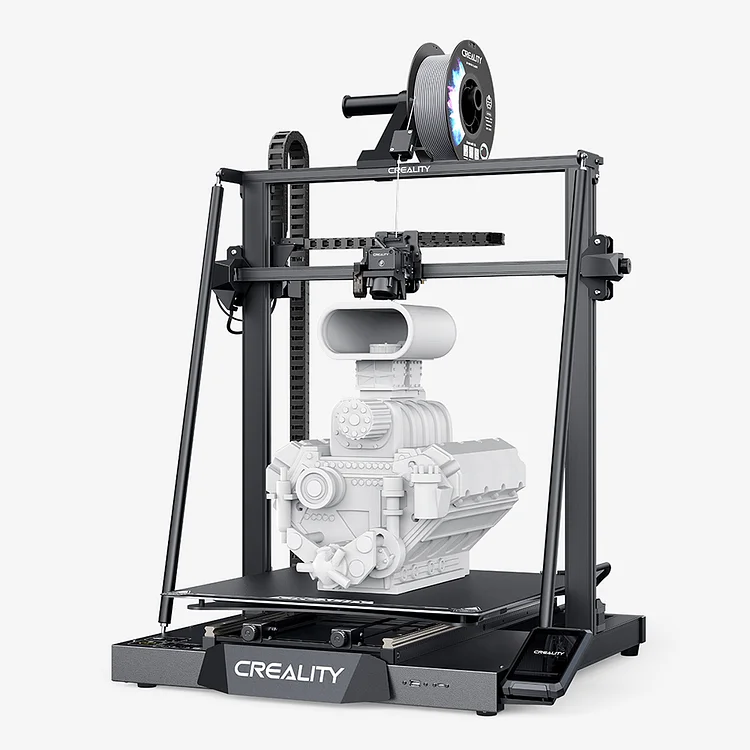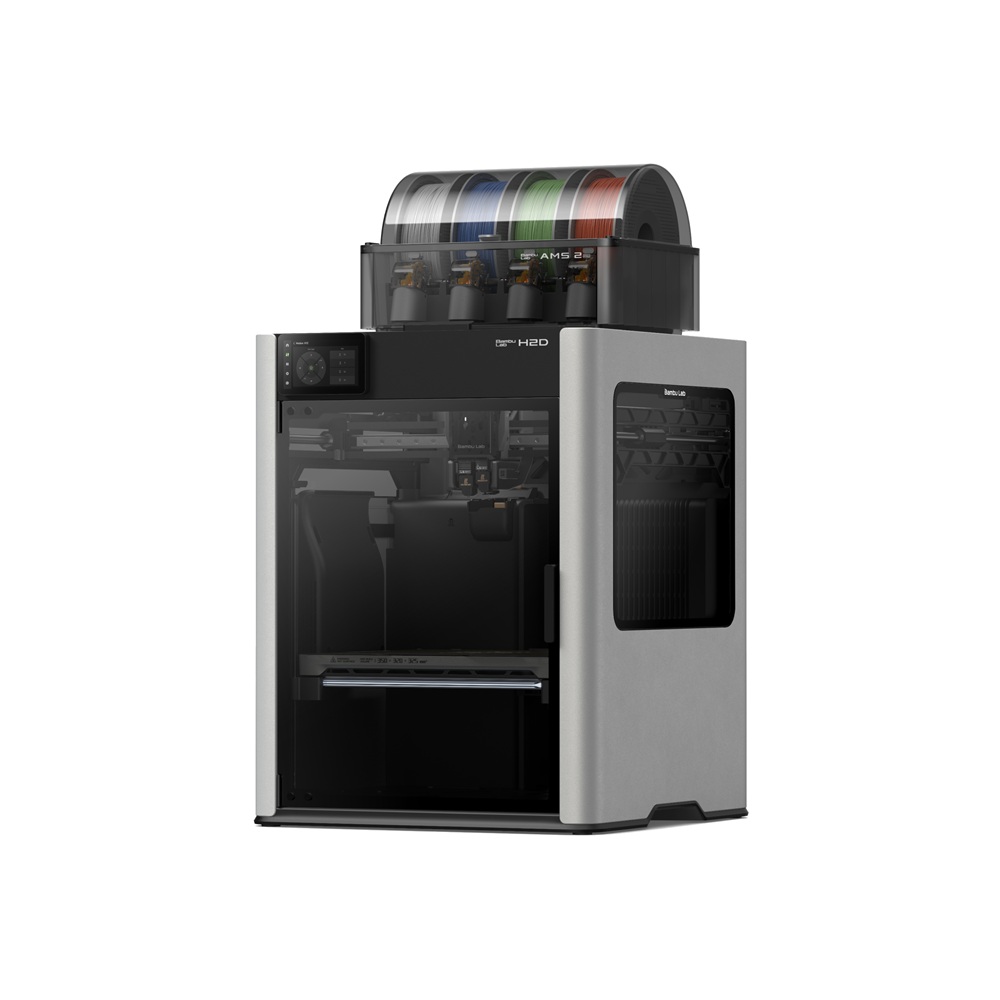Compare CR M4 vs H2D
Comparison between the best 3D printers
Choose the best 3D printer at the best price. The cheapest 3D printers are here.
Buy a 3D printer here with 3D Fila.
 |
 |
|
| Model | CR M4 |
H2D |
| Printing Material | Filament | Filament |
| Buy Filament for Creality 3D CR M4 | Buy Filament forBambu Lab H2D | |
| Estimated price | $1099,00 | $1899,00 |
| Manufacturer | Creality 3D | Bambu Lab |
| Release Year | 2023 | 2025 |
| Print Volume [mm] | 450x450x470 | 350x320x325 |
| Printer Size [mm] | 655x700x865 | 492x514x626 |
| Weight [kg] | 23 | 42,3 |
| Power Loss Recovery | YES | YES |
| Enclosed printer | NO | YES |
| Bed Leveling | Automatic | Automatic |
| Filament End Sensor | YES | YES |
| Bed type | Heated | Heated |
| Power supply system | Direct Drive | Direct Drive |
| Standard nozzle | 0,4 | 0,4 |
| Maximum Nozzle Temperature [°C] | 300 | 350 |
| Maximum Bed Temperature [°C] | 100 | 120 |
| Maximum printing speed [mm/s] | 180 | 600 |
| Filament holder | YES | YES |
| Camera for supervision | NO | NO |
| Recommended filaments | PLA, PETG, TPU, ABS, PLA-Wood, PA, PLA-CF | PLA, PETG, ABS, ASA, TPU, PVA, Nylon (PA) |
| Recommended slicers | Cura, Simplify, Slic3r, IdeaMaker | Bambu Studio |
| Maximum Resolution [mm] | 0,1 | 0,01 |
| Processor | ||
| Display | Display touchscreen 4,3'' | Touchscreen 5'' |
| Power Supply | 110/220V / 800W | |
| Connectivity | SD / USB / Wi-Fi | Wifi, Bambu bus, Cartão SD |
| Operating systems | Windows, Mac, Linux | Windows, Mac, Linux |
| Date of registration in the system | 2023-02-06 | 2025-03-31 |
| Release date | 2023 | 2025 |
| Extra features | The Creality CR-M4 printer stands out for its easy assembly and automatic table leveling. With dual-gear extruder technology and direct drive, it ensures quality prints. It offers Wi-Fi and LAN connections for easy file sending. Its large construction volume of 450x450x470 mm allows for bold projects. It has linear rails and a high-power Y motor, supporting up to 30 kg on its plate. The innovative design includes an efficient cooling system and a removable screen controller, optimizing usability and comfort during printing. | Bambu Labs H2D combines high-speed 3D printing with a chamber heated up to 65 °C, dual extrusion with automatic nozzle switching, an AMS for filament drying and exchange, and AI sensors that detect failures. It offers optional laser and digital cutting capabilities, features intelligent calibration through computer vision, vibration control, enhanced fire safety, and real-time camera monitoring. |
| Support for multiple colors and materials (AMS and CFS) | NO | YES |
Notes * |
||
| Cost-benefit | 6 / 10 | 7 / 10 |
| Hardware | 3.2 / 10 | 8 / 10 |
| Tela | . | . |
| Print volume | 4 / 10 | 4 / 10 |
| Performance | 1 / 10 | 5 / 10 |
Conclusion |
| In comparing the Creality 3D CR M4 and the Bambu Lab H2D, both printers cater to distinct user preferences and requirements, yet they each have their strengths and weaknesses. The CR M4, with its more affordable price point, offers a larger print volume and is suitable for a variety of materials, making it a great option for hobbyists or users seeking to experiment with diverse filaments. Its automatic bed leveling and user-friendly setup lend themselves to an accessible printing experience. However, it lacks some advanced features present in higher-end models, such as an enclosed build chamber and the capability for AI-driven supervision. On the other hand, the H2D, despite its higher cost, excels in performance metrics such as maximum printing speed and finer printing resolution, making it more suitable for professional applications where precision and efficiency are critical. It also boasts advanced features like dual extrusion and intelligent calibration, enhancing its versatility, particularly for users needing to print in multiple materials or colors. Furthermore, the enclosed design offers enhanced temperature control, contributing to better print quality and reliability. Overall, the choice between the two boils down to the intended use. For those on a budget with a focus on larger projects and variety, the CR M4 is a solid option. Conversely, for users looking for high-performance capabilities and advanced features despite a higher investment, the H2D provides a compelling choice. It ultimately depends on the user's specific requirements and willingness to invest in technology. |

